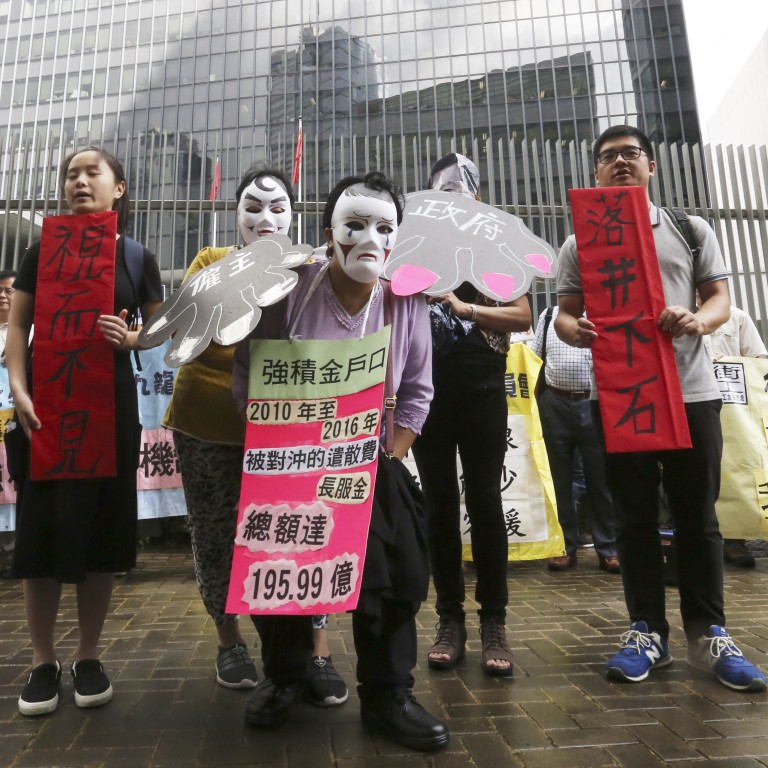
Letters | Improve MPF first before moving retirees to annuity plan
- Readers discuss the Mandatory Provident Fund, plans to make retirees move their savings into an annuity and whether that will make retirement more secure
The Business and Professionals Federation of Hong Kong can see the merits of implementing such a plan in the long run but believes that at present, it would face significant opposition unless other more pressing improvements receive priority.
The failure to eliminate the offsetting arrangements is a scandal which has led to injustice for our least privileged citizens. While it is a relief that early action on this has been promised, we will not feel reassured until legislation is actually on the table. That legislation should include arrangements to mitigate the impact of offsets during the transition period.
Only when much-needed improvements to the MPF system are in place will people think highly enough of it to be willing to contemplate conversion of MPF balances into annuity payments, a concept which we support.
As Law pointed out, if retirement protection is insufficient, the pressure will eventually be felt in the welfare system, including the Comprehensive Social Security Assistance scheme.
Hongkongers take pride in their contributions to society through their hard work and would rather not turn to welfare payments, if it can be avoided. It is therefore incumbent on the government to reassess its position and to prioritise steps that will allow everyone to accumulate sufficient funds for a dignified retirement, free from the curse of undue financial anxiety.
Rachel Cartland, Executive Council member, Business and Professionals Federation of Hong Kong
Shift to public annuity plan will not help retirees
Last week, Secretary for Labour and Welfare Dr Law Chi-kwong suggested the government should consider putting individual MPF savings into an annuity plan upon retirement, even making it mandatory. However, such a proposal risks defeating its purpose of promoting a stable retirement.
According to Law, a retiree could receive HK$20,000 a month for investing HK$4 million of MPF savings in the annuity scheme. Owning such an astronomical amount of MPF savings might be more realistic among civil servants as the government provides a voluntary MPF contribution of up to 25 per cent of their salary.
Nevertheless, based on the latest study of MPF Ratings Limited, MPF retirees only accumulate around HK$270,000 on average. Using an online calculator for the public annuity scheme, I estimate Hong Kong retirees might only receive HK$1,450 or less in reality.
On the other hand, retirees need to have large amounts of cash on hand for emergency use, such as to pay for surgery or any other health care expense. The compulsory transition of MPF savings to the annuity scheme could hence hamper their financial security.
Though the upsides of a public annuity should not be denied, the choice should remain in the hands of the citizens.
Law said this idea is nothing new. However, the legitimacy of a policy should not lie on when it is planned but how it is planned. Such argument should not be an excuse for overlooking its flaws.
The government should think carefully before pressing ahead with any decision that would have an impact on many generations to come.
Alison Ng, Mong Kok

